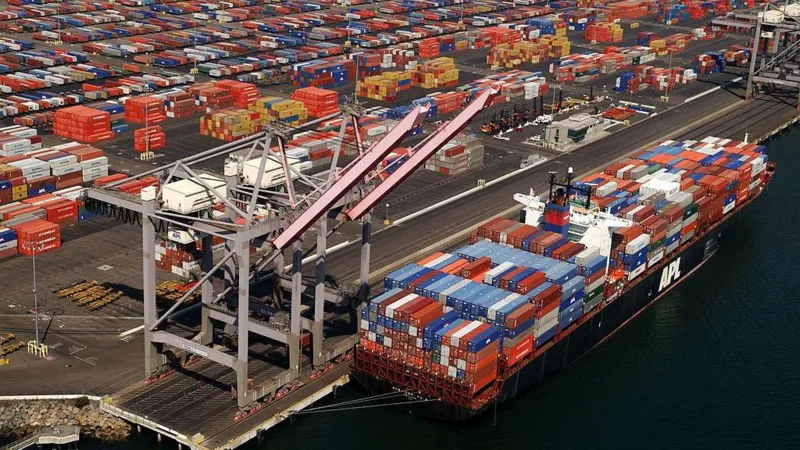The International Monetary Fund (IMF) has raised its global economic growth forecast, citing a recent surge in trade activity and policy actions by governments aimed at stimulating their economies. The global economy is now projected to grow by 3% in 2025 and 3.1% in 2026, up from April’s estimates of 2.8% and 3% respectively.
This uptick is largely attributed to a wave of front-loading by American firms racing to import goods ahead of new import tariffs introduced by former US President Donald Trump. However, the IMF warned that this temporary boost could fade quickly, with potential downsides including excess inventory, increased storage costs, and the risk of goods becoming obsolete.
Despite the recent improvement, the IMF’s projections remain below the pre-pandemic average of 3.7% and the 3.3% forecasts it issued in January, prior to Trump’s tariff announcements. Chief Economist Pierre-Olivier Gourinchas emphasized that while easing trade tensions have contributed to economic resilience, tariffs remain a significant burden.
“The world economy is still hurting,” Gourinchas said. “It’s going to continue hurting with tariffs at that level, even though it’s not as bad as it could have been.”
The IMF expects global inflation to ease, predicting a decline to 4.2% in 2025 and 3.6% in 2026. Yet, inflation in the US is projected to stay above target, as import taxes are likely to be passed on to consumers later this year.
Meanwhile, the UK economy is forecast to grow by 1.2% in 2025 and 1.4% in 2026, unchanged from earlier estimates. The country is expected to be the third-fastest growing advanced economy over the next two years, behind only the US and Canada.
The IMF’s forecasts do not factor in recently announced trade deals with Japan and the EU, nor do they include upcoming tariffs on vehicles, metals, pharmaceuticals, and chips. Talks between the US and China continue, with existing tariff hikes paused until August 12.
Gourinchas concluded that while short-term boosts are evident, long-term risks remain high if trade uncertainties persist.

